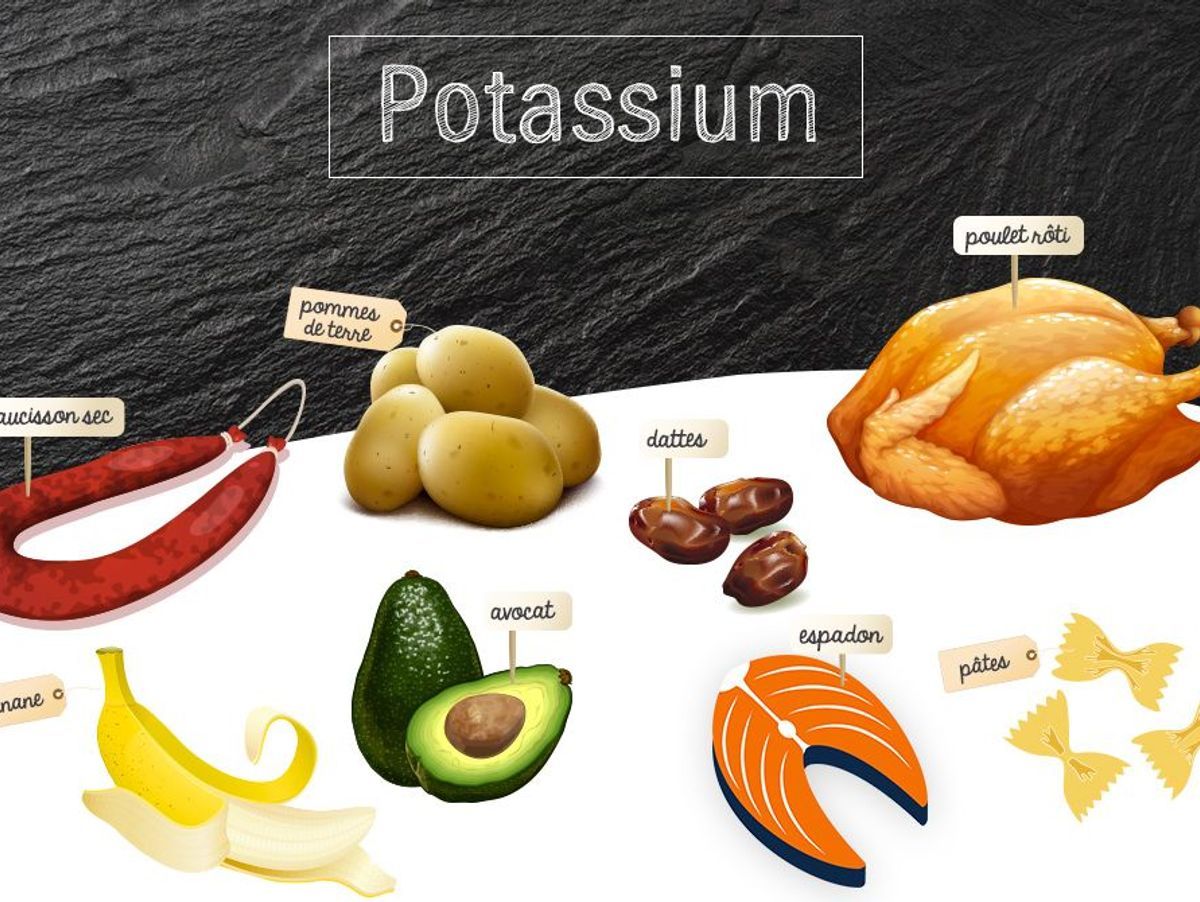Understanding Potassium
What is Potassium?
Potassium is a mineral and an electrolyte found in abundance within the body’s cells and fluids. It is essential for proper physiological function and is involved in numerous biochemical processes.
Sources of Potassium
Potassium is found naturally in many foods, including fruits, vegetables, legumes, nuts, seeds, dairy products, and fish. Some of the best dietary sources of potassium include bananas, sweet potatoes, spinach, avocado, and beans.
Recommended Intake
The recommended daily intake of potassium varies by age, sex, and life stage. For adults, the adequate intake (AI) level is generally around 3,400-4,700 milligrams per day, although individual needs may vary.
Functions and Benefits of Potassium
Electrolyte Balance
Potassium, along with sodium, helps maintain electrolyte balance and regulates fluid levels within cells and tissues. This balance is essential for proper hydration, nerve function, and muscle contraction.
Muscle Function
Potassium plays a vital role in muscle contraction and relaxation, including the contraction of the heart muscle (cardiac muscle) and skeletal muscles. It helps regulate muscle contractions by influencing the movement of sodium ions across cell membranes.
Nerve Transmission
Potassium is involved in nerve impulse transmission, which allows for the communication of signals between nerve cells and the brain. It helps generate action potentials, enabling neurons to send electrical signals throughout the body.
Blood Pressure Regulation
Potassium plays a key role in blood pressure regulation by counteracting the effects of sodium and helping to relax blood vessel walls. Adequate potassium intake is associated with lower blood pressure levels and reduced risk of hypertension.
Heart Health
Potassium is essential for maintaining normal heart rhythm and preventing arrhythmias (irregular heartbeats). It helps regulate the electrical activity of the heart and supports overall cardiovascular function.
Bone Health
Some research suggests that potassium may have a beneficial effect on bone health by reducing the loss of calcium in the urine and improving bone density. However, more studies are needed to fully understand its role in bone metabolism.
Dietary Tips for Increasing Potassium Intake
Eat Potassium-Rich Foods
Incorporate a variety of potassium-rich foods into your diet, such as fruits (e.g., bananas, oranges, kiwi), vegetables (e.g., spinach, sweet potatoes, tomatoes), legumes (e.g., beans, lentils), nuts, seeds, and dairy products.
Choose Whole Foods
Opt for whole, minimally processed foods over highly processed options, as they tend to be richer in potassium and other essential nutrients.
Cook Smart
Use cooking methods that preserve potassium content, such as steaming, boiling, or microwaving, rather than frying or grilling, which can lead to nutrient loss.
Be Mindful of Salt
Reduce your intake of high-sodium processed foods and choose low-sodium options whenever possible, as excess sodium can increase potassium excretion and disrupt electrolyte balance.
Consider Potassium Supplements: If you struggle to meet your potassium needs through diet alone, talk to your healthcare provider about the possibility of taking potassium supplements. However, supplements should only be used under medical supervision.
FAQs about Potassium
Can you have too much potassium?
While potassium is essential for health, consuming too much potassium can lead to hyperkalemia, a condition characterized by high levels of potassium in the blood. This can be dangerous and may cause symptoms such as muscle weakness, irregular heartbeat, and even cardiac arrest.
Who is at risk of potassium deficiency?
Certain individuals may be at higher risk of potassium deficiency, including those with gastrointestinal disorders that affect nutrient absorption, individuals taking diuretics or certain medications, and people with eating disorders or malnutrition.
Can potassium supplements interact with medications?
Yes, potassium supplements can interact with certain medications, including potassium-sparing diuretics, ACE inhibitors, and potassium-binding resins. It’s important to consult with a healthcare provider before taking potassium supplements, especially if you are on medication.
Can potassium help prevent muscle cramps?
Potassium deficiency (hypokalemia) has been associated with muscle weakness and cramps, so maintaining adequate potassium levels through diet may help prevent muscle cramps in some individuals, especially athletes and those prone to muscle cramps.
Is potassium good for kidney health?
Potassium plays a role in maintaining kidney function and electrolyte balance. However, individuals with kidney disease or impaired kidney function may need to monitor their potassium intake closely, as high potassium levels can be harmful to the kidneys.
Does cooking food reduce potassium content?
Cooking methods that involve boiling or steaming can cause some loss of potassium, as it may leach into the cooking water. However, the extent of potassium loss depends on factors such as cooking time, temperature, and the type of food being cooked.
Can potassium supplements help lower blood pressure?
While potassium supplements may have a modest effect on lowering blood pressure, particularly in individuals with hypertension or high sodium intake, they should not be used as a substitute for other lifestyle modifications, such as dietary changes and exercise, for blood pressure management.
Conclusion
Potassium is a vital mineral that plays numerous roles in maintaining overall health and well-being, from supporting muscle function and nerve transmission to regulating blood pressure and heart rhythm. By prioritizing potassium-rich foods in your diet and adopting healthy eating habits, you can ensure that your body receives an adequate supply of this essential nutrient. Whether enjoyed in fruits, vegetables, legumes, or dairy products, potassium-rich foods offer a myriad of health benefits that contribute to your overall vitality and longevity. Embrace the power of potassium and nourish your body with the nutrients it needs to thrive!
- Nu-Derm Skin System Near East Molesey, Surrey - June 1, 2025
- Will Weight Gain Reduce Nasolabial Folds? - June 1, 2025
- The Emotional Cost Of Being Ghosted In A Relationship - May 31, 2025

